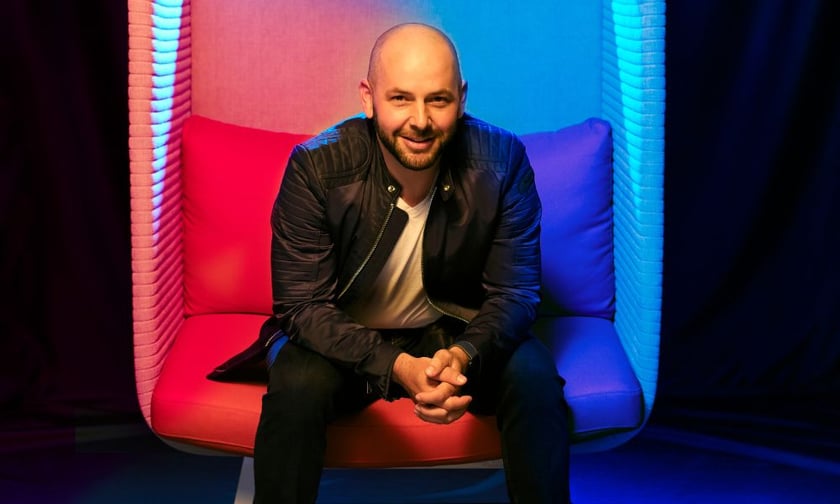

As Mitch Insurance recently celebrated its 75th year in business, the company’s CEO Adam Mitchell (pictured) said the milestone was achieved as a result of strategic organic growth measures, shooting from $2.5 million to $62 million in premium and growing staff to almost 100 employees.
“As a team, we got pretty good at turning strangers into clients,” he said.
“We really had to think long and hard about how to court a massive amount of consumers browsing the internet or calling different businesses for insurance solutions and have them refer us to other friends and family members looking for coverage.”
With the use of a proprietary lead management software called Goliath (developed by someone with the name David), the company was able to quickly generate business and eventually ended up licensing the software to other brokerages.
“We came about it innocently then became good at that particular discipline of adding clients and finding opportunities,” Mitchell, the third generation to helm the company, said.
In an interview with Insurance Business, Mitchell spoke about why pushing the envelope with technology has benefitted the company, whether the family lineage is important to the brokerage and why M&A activity can be scary for smaller businesses.
According to Mitchell, the secret sauce to accruing premium and growing as an organization is experimentation and taking risks.
“It wasn’t by happenstance that we grew,” he said.
“I had a full head of hair when I took over and things seemed easier, but the stress of wanting to do better and reach new goals was stressful.”
Mitchell alluded to an age-old family business adage where the owners are incredibly sales oriented and entrepreneurial when launching a company, while the next generation of owners live under the shadow of this big, risk-taking personality.
“You end up with what could be slightly more passive or operator-sized,” he added.
“My grandfather started with nothing and grew something out of that, creating a small family business that my father and uncle took over, but neither of them really reached new heights.”
However, the CEO added that in the third generation, business owners are said to follow more ambitious desires and take chances.
“We kept pushing the envelope and reinvesting,” he said.
This alternative way of thinking led Mitchell and his small company to invest heavily into technological solutions to try and scale up, with Goliath being a prime example of these endeavours.
“I think it was rare for a company of our size and capability to employ a full-time developer and program. And by having that inside, we were able to translate that into more business,” he said.
“At the core, however, the growth side specifically was getting good at opening and finding opportunities and then getting really systematic and disciplined about how we onboard those clients.”
While family-run businesses can be leveraged as a selling point to consumers; Mitchell noted that for Mitch Insurance, the family lineage is not as important.
“On the macro side, it can be a bit of a hinderance, as there is this notion of nepotism and favouritism as opposed to best person for the job,” he admitted.
As M&A activity grows in the insurance industry, Mitchell said the family-owned enterprise is becoming more of an anomaly.
“Previously, there was a ton of small, family businesses with high barriers of entry that were eventually passed down to next of kin,” he said.
“All of a sudden, private equity and really strong executives are acquiring and rolling these things up in big roll up strategies.”
While a great PR tool, the idea of a multi-generational family operation will not save entities from being incorporated into a larger conglomerate if it makes sense for business. Still, the family model does have its advantages.
“This type of story is warm and fuzzy and can matter to customers, namely, when it’s independently operated or privately owned as another sort of language as opposed to public or private equity,” he said. “Then, the sole purpose is to extract value for shareholders.”
While Mitchell was lucky enough to be able to buy the company from his father when he did, he sees his time with Mitch Insurance as more of a revitalization of the business as opposed to a more seamless transition.
“It was just me and a receptionist,” the CEO noted. “What we got a hold of didn’t have a lot of momentum, legacy, clients or many contracts. And so we built everything up from that very little kernel.”
When thinking about how to succeed as a brokerage in the past, Mitchell remarked that you either needed to have scale or be super niche.
“I now almost don’t believe in specialized in the long-term run, because, inevitably, it looks like all of the big guys have specialized,” he said. “They just write a bigger and bigger cheque, they start internalizing the specializations or just pull the talent over.”
Additionally, Mitchell admitted that for many small players in the industry right now, things can seem quite bleak as they strategize to keep ownership of their businesses.
“It often feels like a game of chicken where the car on the other side just keeps getting bigger and bigger and bigger, and the game is getting scarier and scarier,” he explained.
Being in insurance is a long-term hustle and requires significant foresight to stay ahead of the curve or keep apace with how the industry is moving.
With this in mind, Mitch Insurance is thinking of ways to offer a lifeboat to brokerages that may have a rough five-10 years ahead of them.
“We’re figuring out how can we allow other brands to tuck into our fold and use some of our resources to collaborate so they can get more markets, accounting resources, HR insight,” the CEO said.
